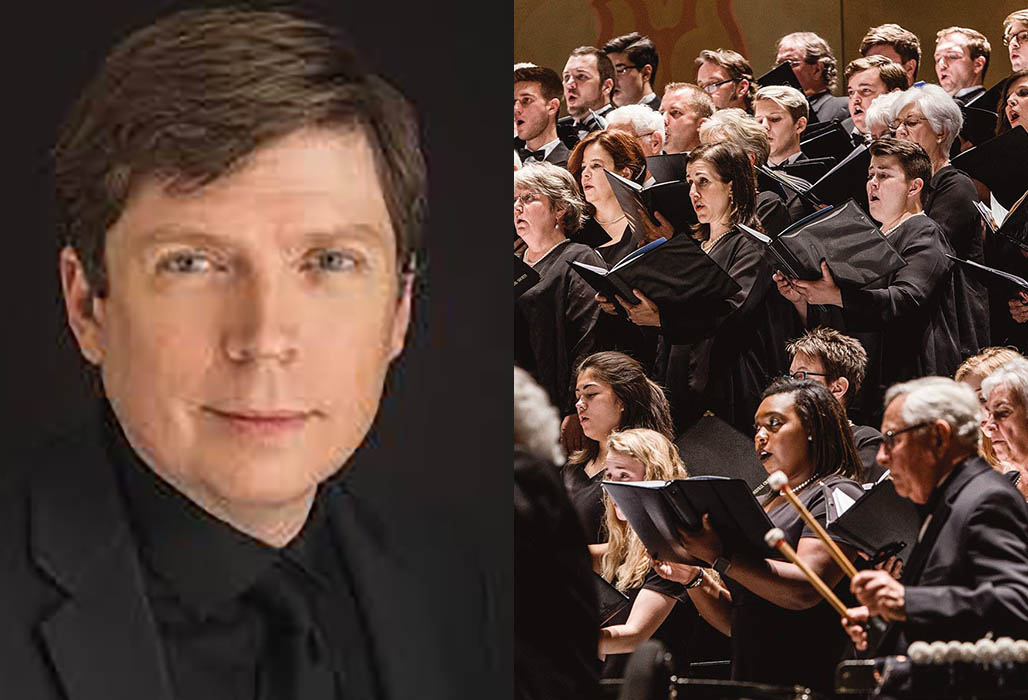Ask a classical music listener to describe the Baroque Period in music and a generic answer will invariably gravitate to two composer’s names—Johann Sebastian Bach and George Frideric Handel. While the pair was born only a month apart in 1685, and in German towns 90 miles apart, J.S. Bach and G.F. Handel never met, and could not have had more different musical careers. During his lifetime, Bach rarely traveled beyond a 50 mile radius to find work in the various courts and churches where he was known as an organist or composer. Handel, on the other hand, spent his career as a freelancer—got a taste for the stage at the Hamburg Opera, left for Italy and Italian opera at age 21, and then spent the last four decades of his working life in London.
Because both composers were extremely prolific over their lifetimes, the sheer quantity of their music makes curating an individual overview a bit mindboggling. For their November concert this past weekend at Central Bearden Baptist, the Knoxville Choral Society took the Handel path and selected a sample of choral works that sprang from three key points in the composer’s life: his early work in Italy, anthems commissioned for the coronation of George II in 1727, and his later oratorio period.
This Handel Masterworks concert was also notable for the presence of the KCS’s new artistic director and conductor, Dr. John Orr, and for a glimpse into the direction that he intends for this auditioned membership organization. That direction, of which enticing programming choices are key, will be of paramount importance as the Knoxville classical music scene expands in both participation and repertoire. Touching on issues of the organization’s diversity, Orr’s opening remarks seemed to suggest a calm, professional, and methodical demeanor, certainly one that carried over into the evening’s solidly performed program. Given the size of the KCS ensemble, and the age diversity of the voices, Orr seems to now be blessed with the model large membership choral organization that is able to bring the vast history of choral music to the public.
The large work of the evening was Handel’s Dixit Dominus (HWV 232) dating from the composer’s time in Italy—a work in which one can hear suggestions of the 22-year old Handel expanding his horizons and taking on some textural diversity. The opening chorus presented an energetically brisk tempo, one that settled down a bit through the nine movements. A nice surprise was the No. 8 Chorus: “De torrente in via bibet” and the nicely balanced lyrical duet that featured sopranos Jennifer Bruce and Kathryn Paden.
Although understandable, it was a bit startling to see that the soloists were being miked and amplified. Reality rules, I suppose. After all, this was a concert featuring a 32 piece orchestra and a chorus of 120 plus, and in a church nave interior that seemed to have a lower natural resonance that favored the mid and low frequencies from cellos, basses, and male voices.
Orr opened each half of the concert with one of the Coronation Anthems written for the coronation of George II: Zadok the Priest with The King Shall Rejoice following intermission. Not surprising as the most celebrated of the coronation anthems, Zadok proved a great opener on this occasion as it makes use of lofty vocal territory and energy from the choral ensemble, augmented by the orchestration that is bright with trumpets.
Is it possible to program a concert of Handel choral works and not include at least part of the composer’s choral masterpiece, Messiah? Probably not, although that fact represents both positives and negatives. Handel never intended it as the religious icon it has become, but rather as a crowd-pleasing moneymaker. One could argue that it has succeeded in both regards.
Orr and the KCS offered five of the most familiar choruses from Messiah, including “And the glory of the Lord” and “For unto us a child is born,” concluding, of course, with “Hallelujah.” Fortunately, this was this listener’s first “Hallelujah” of the season—and I’ll go out on a limb and say it will probably be the best.
In December, the KCS will do their usual gig with the Knoxville Symphony Orchestra’s Holiday Concerts. In April, the Society will again join the KSO for a performance of Beethoven’s Ninth Symphony.








